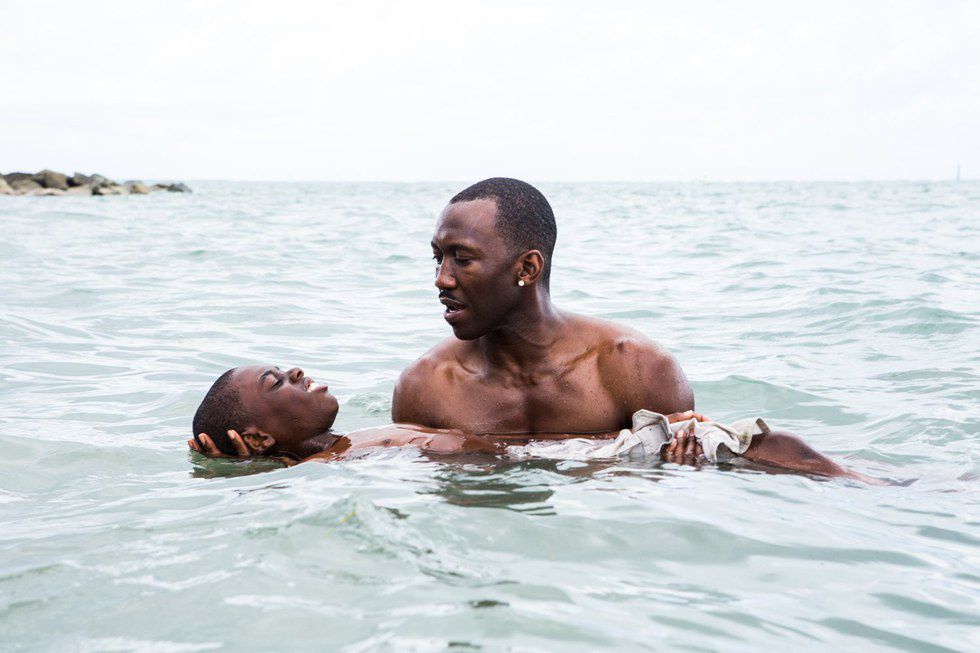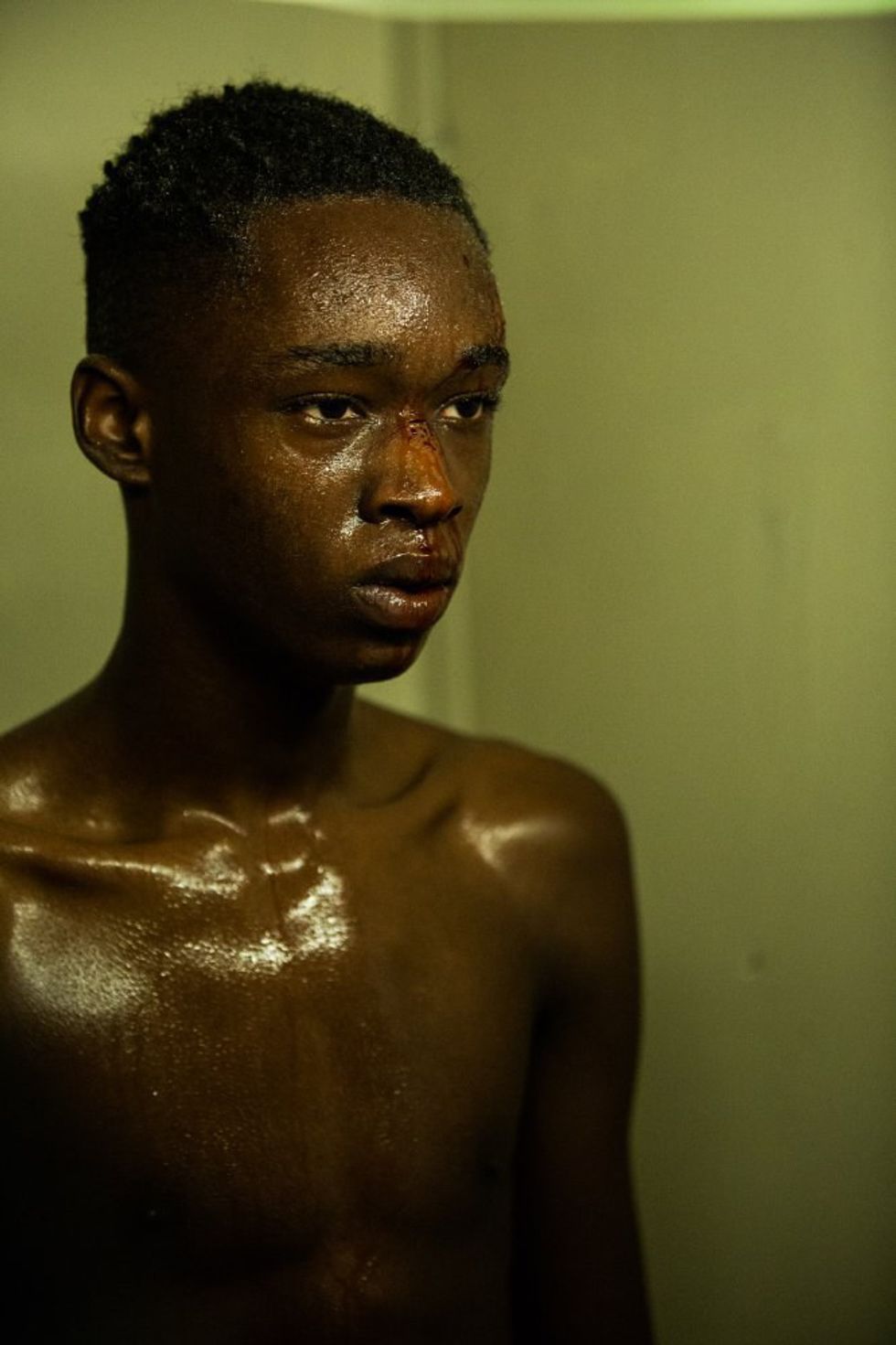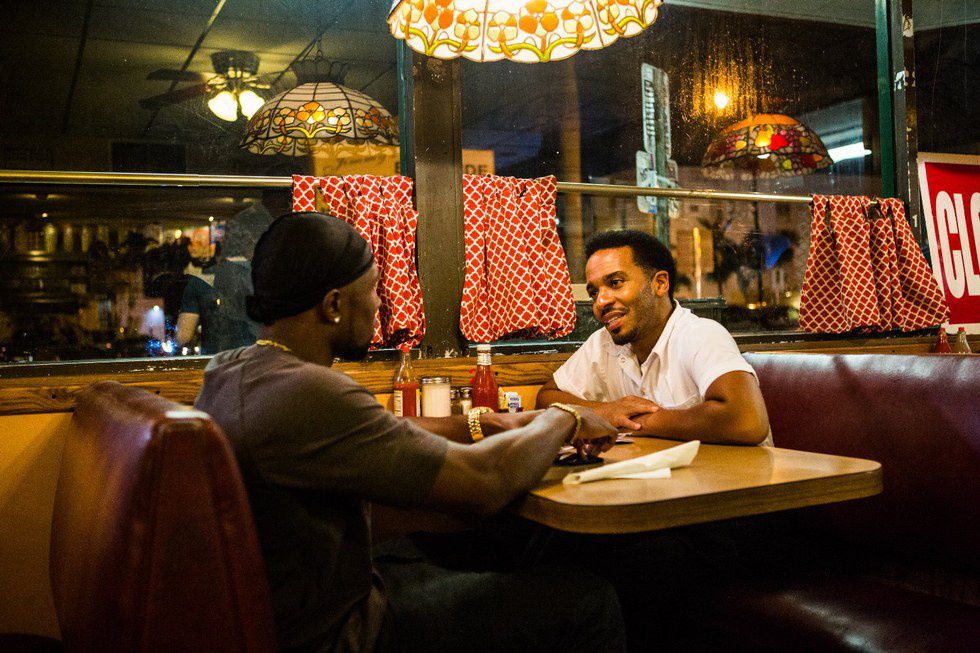"Moonlight," directed by Barry Jenkins, is a heartbreaking social document that is both powerful and subtle, and rich in context and socially controversial subjects. It is a quiet movie—but its loud, impacting themes leave a lump in your throat, and stays with you long after the film ends. “Moonlight” encompasses themes about identity, race, sexuality, masculinity, friends and family, and does so through the eyes of Chiron—a young, gay boy growing up in one of Miami’s drug ridden neighborhoods. His world, captured in three chapters of his life, reflects challenges we all face with ridicule, virility and self-identification. Its tragic nature transcends the screen, reminding us of the cruel, yet hopeful, world we live in.
The first chapter follows Chiron, or “Little,” in his adolescence, bearing his first encounters with his emotionally abusive, junkie-mother, bullies, and the complexities of his identity. The young Chiron, played by Alex R. Hibbert, is raw in emotion, with elongated lapses of silence and the occasional mumble, few and far between. Little spends most of his time with Juan (Mahershala Ali), a drug dealer in the neighborhood who protects him from his mother and the harsh streets. Along with his girlfriend Teresa (Janelle Monae), the two reassure Little of his individuality, helping him come to terms with who the world wants him to be. The act concludes with a powerful monologue by Juan about growing up unique, getting rejected, and absorbing words like “faggot.”
I was holding back tears.
The second chapter reveals a more damaged Chiron, played by Ashton Sanders, as a high school student in a stage where his identity is more realized by both him in his peers. Constantly running from those who aren’t keen to his sexual nature, Chiron is pushed and punched in to an existential identity crisis, one which is combatted by his friend Kevin (Jharrel Jerome) as a teenager. His first experiences with love are sentimental and moving, encapsulating lives too rarely seen in modern films. Chiron is ransacked by his mother for drug money, beaten by old friends that turned against him, and driven to an act of climactic brutal revenge. But the tragedies for Chiron are balanced by the elegant cinematography and colorful shots which capture the pained faces so beautifully—an oxymoron of sorts.
The third act shows Chiron, or “Black,” in his adult life, buffed up and sporting a golden grill, an implication for what measures were necessary to protect him from his own identity. Played by Trevante Rhodes as an adult, Chiron reconnects with his friend Kevin (Andre Holland). By design, this chapter is the least effective of the three, and doesn’t necessarily lead to some huge, third-act climax. Instead, we see Chiron more aware of himself, but still coping with the long-term effects of his life, restoring his relationship with his mother, and finding love (hopefully).
The film’s subtlety is exactly what makes “Moonlight” shine so bright. Themes of gang-banging, drug dealing, domestic violence, and sexuality are what this movie is central to, but it doesn’t need loud gunshots or oversaturated violence to demand your attention. The performances are what carry this movie, as every character has a strong purpose and a sense of realism that makes this movie truly authentic. The script is profound and intelligent, and the silence in between conveys an equal amount of intensity and emotion. “Moonlight” is the jewel of 2016, and I don’t imagine any film outshining its excellence in these last few weeks.
I give “Moonlight” a 9.5/10.











 The minimum wage is not a living wage.
StableDiffusion
The minimum wage is not a living wage.
StableDiffusion
 influential nations
StableDiffusion
influential nations
StableDiffusion











